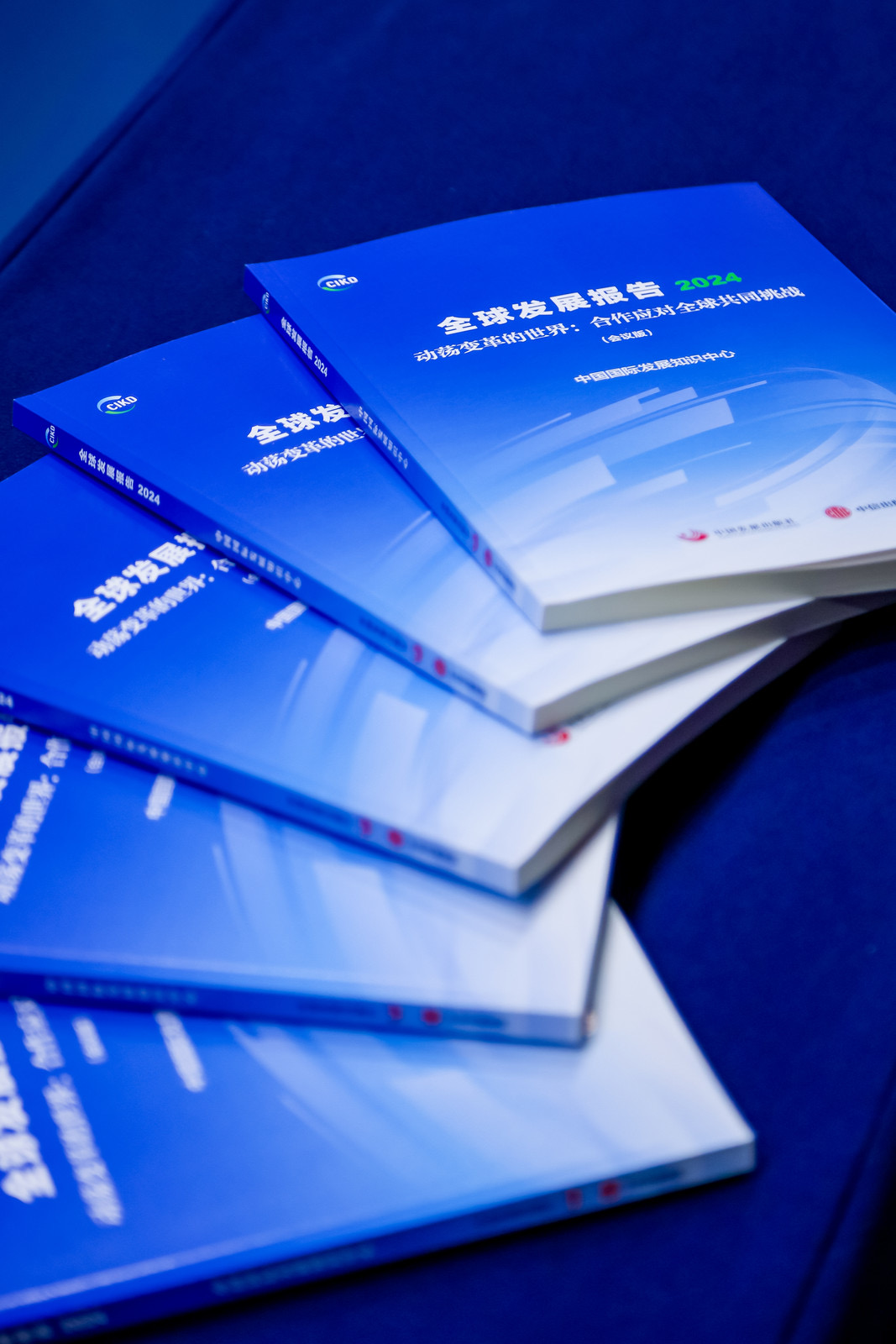Greater global unity key to sustainable growth
By SONG PING | China Daily Global | Updated: 2024-12-09 10:04

Global unity and cooperation are essential for tackling today's complex challenges and building a sustainable future for all, experts from home and abroad said at the launch of the Global Development Report 2024 in Beijing on Friday.
"All these solutions point in one direction: what is needed is greater global cooperation to achieve inclusive, fair, ecologically sustainable and people-centered development to benefit all the people on planet Earth," said Sudheendra Kulkarni, founder and chairman of the Forum for a New South Asia.
The report, released by the Center for International Knowledge on Development, analyzed the global development landscape and outlined obstacles to achieving the United Nations 2030 Agenda for Sustainable Development.
Zhang Laiming, vice-director of the Development Research Centre of the State Council, advocated the importance of accumulating experience, building consensus and sharing opportunities to address these challenges, while also managing risks collectively and implementing the 2030 Agenda. Such efforts, he stressed, are vital for creating an inclusive, balanced and cooperative global development framework.
The report indicates that technological advancements and the rise of the Global South offer new opportunities for collaboration. "Renewable energy technologies provide a feasible technical pathway to promoting a global green and low-carbon transformation," said Wang Jinzhao, the executive vice-president of CIKD.
Speaking about China's green development, Arkebe Oqubay, former senior minister and special adviser to the former Prime Minister of Ethiopia, said that China, as a global green powerhouse, has reduced transformation costs by over 90 percent, significantly lowering barriers to adopting green development strategies for other countries.
Carlos Correa, executive director of the Geneva-based South Centre, emphasized the pivotal role of the Global South, which now accounts for more than 40 percent of global GDP. He said that platforms such as BRICS are key to reshaping the international system, making it more inclusive and supportive for developing nations.
The report identified key challenges in climate change, industrial and supply chains, digital transformation, poverty reduction, food security, global health and development finance.
Kulkarni from the Forum for a New South Asia highlighted the importance of investing in education for future inclusive development. He praised the success of China's smart education platform, which attracted more than 100 million registrations within a year of its launch, providing children in rural and remote areas access to classes in various disciplines.
Addressing challenges requires reconciling a fundamental contradiction in global development. "On one hand, advancements in science, technology, and productivity present promising prospects," said Wang Lei, deputy director of the Institute of World Economics and Politics at the Chinese Academy of Social Sciences. "On the other hand, gaps in the international order and policy frameworks cause inefficiencies and welfare losses. Effective collaboration is the only way to address this contradiction and unlock development's full potential."
"I believe the strategic partnership between developing countries is more important than ever before," said Muhammad Habib, a researcher from the Indonesian Center for Strategic and International Studies.
Osama El Gohary, assistant to the prime minister of Egypt and chairman of the Egyptian Cabinet's Information and Decision Support Center, agreed that China's Belt and Road Initiative is crucial for African countries like Egypt. He said through advanced satellite technology and support in digital sectors like communication and navigation, China has significantly boosted Egypt's digital transformation and competitiveness.
Meanwhile, global trade should play an important role in solving global challenges, not in contributing to them, said Ralph Ossa, chief economist and director of the Economic Research and Statistics Division at the World Trade Organization, adding that importing goods from countries with lower carbon emissions enhances the efficiency of global supply chains and protects the environment, providing a tangible strategy to address climate change.
Speaking via video at the event, Siddharth Chatterjee, UN resident coordinator in China, said, "No single country, including China, can achieve the SDGs alone. That is why the UN and China will continue to serve as a convener, a connector, and a catalyst for action, reinforcing partnerships, fostering dialogue, and supporting implementation."
Lu Tianyue contributed to the story.
























